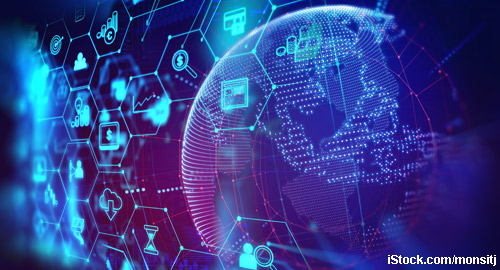 CHICAGO—Blockchain is a hot topic in technology. Usually, it’s for a peer-to-peer payment system using cryptocurrency, such as bitcoin. According to speakers for Blockchain: The Next Revolution in Health Care, a session at the 2018 ACR/ARHP Annual Meeting, this technology may play a role in the future of medicine, creating a more efficient way to purchase drugs and share data.
CHICAGO—Blockchain is a hot topic in technology. Usually, it’s for a peer-to-peer payment system using cryptocurrency, such as bitcoin. According to speakers for Blockchain: The Next Revolution in Health Care, a session at the 2018 ACR/ARHP Annual Meeting, this technology may play a role in the future of medicine, creating a more efficient way to purchase drugs and share data.
“What is blockchain? It’s a distributed ledger that everyone has a copy of. It’s transparent, so a ledger that everyone sees. It’s secure and hasn’t been hacked yet. It’s auditable, so everyone can see what’s occurred in the database. It’s democratic and decentralized,” said Anh L. Ngo, MD, MBA, instructor of Anesthesia at Harvard Medical School, Boston. “The data are verified and utilize cryptography, a level of encryption.”
A blockchain is a chain of blocks or collections of data. Each user may add data to the blockchain, but data are very difficult to change. Each piece of information is time stamped, has unique hashtags and proof-of-work identifiers, and is distributed for group consensus, said Dr. Ngo. Changed data carry a hashtag for the previous form of the information. In cryptocurrency, a block contains information on the money’s sender, receiver and amount.
“Tampering with something on the block changes the hash, and it’s no longer the same block,” Dr. Ngo said. “This [feature] makes the blockchain secure.”
Dr. Ngo calls blockchain a “trustless trust environment,” in which relationships are not built on familiarity or a handshake, but on data transparency. No one can change information in the blockchain in secrecy; a code identifies any altered data.
Blockchain technology was conceived in 2008 after a paper was written by Satoshi Nakamoto (possibly an alias), and the first blockchain software was created in early 2009 to mine and trade bitcoin, said Dr. Ngo. In 2012, Dr. Ngo built a 20 blockchain computer system to mine bitcoin, causing a power outage when eight of his computers, located in his condominium, overwhelmed the electrical panel. Blockchain requires extensive hardware and energy use, he said. In mid-2018, he joined a new high-tech initiative leading the blockchain research program in the Health Technology Exploration Center at Beth Israel Deaconess Medical Center.
Disrupting Healthcare
Why does blockchain matter to rheumatologists? Medicine, like other industries, is “ripe for disruption,” said Dr. Ngo. “Traditionally, data are organized in a centralized manner, with a hub, and people plug into that hub. In the case of medical records, everyone plugs in to the hospital’s database. As we’re becoming more digital as a society, this becomes decentralized. There is still centralization, because hubs share data, such as electronic health records [EHR], [across] different hospital systems. In the blockchain, the data are not centralized at a hub. [They are] distributed among everyone in the network. Nobody really owns the data.”


